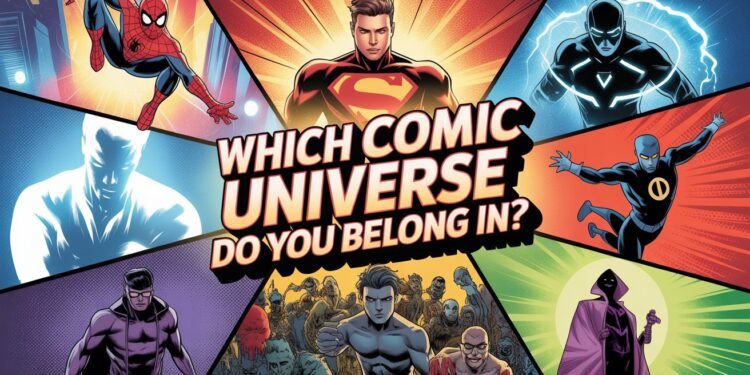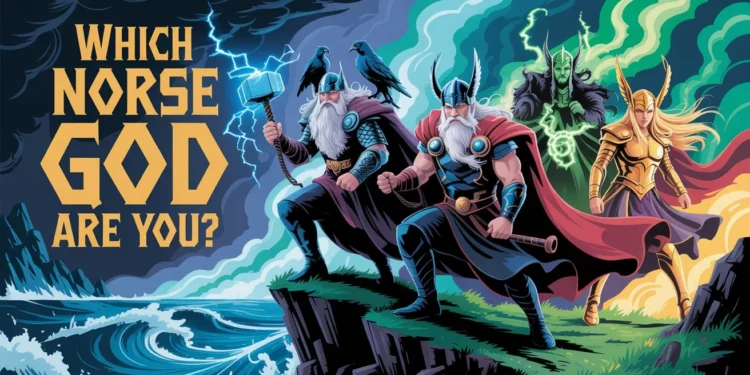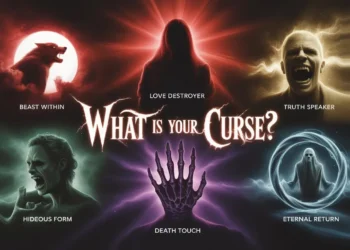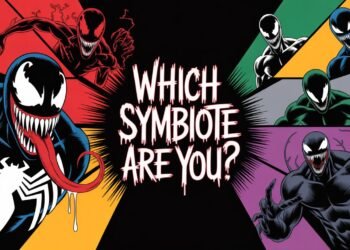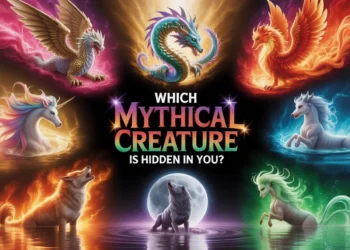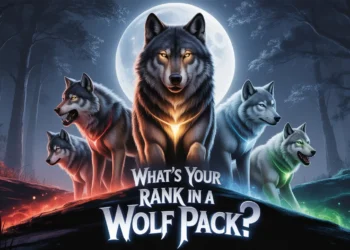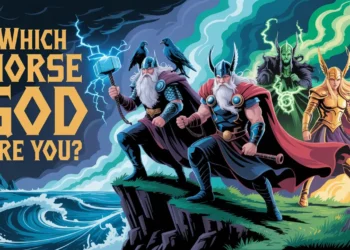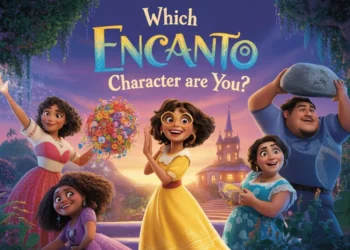Picture this: You wake up tomorrow with incredible powers coursing through your veins. The world suddenly needs a hero, and that hero is you. But here’s the million-dollar question—which comic book reality would you actually thrive in?
Would you be the friendly neighborhood Spider-Man, cracking jokes while your personal life falls apart? The god-like Superman inspiring hope across galaxies? Or maybe you’d be that gritty antihero operating in the shadows, making the hard choices others won’t?
This isn’t your typical “What Superhero Are You?” quiz. This is 12 mind-bending scenarios that dig deep into your psyche, pulling out the raw truth about your heroic DNA. We’re talking life-or-death decisions, moral dilemmas that would make philosophers sweat, and choices that reveal whether you’re built for cosmic battles or street-level survival.
Marvel Universe calling? You might be the type who saves the world while struggling to save your relationships—powerful, flawed, beautifully human.
DC Universe beckoning? Perhaps you’re destined for mythic heroism, standing as a beacon of hope when entire realities hang in the balance.
Valiant Universe whispering your name? Your logical mind might crave a world where superpowers follow actual physics and every action has realistic consequences.
Image Universe pulling at your soul? You could be built for moral complexity, where heroes and villains blur together in shades of gray.
Walking Dead Universe haunting your thoughts? Maybe your true test isn’t fighting supervillains—it’s surviving when civilization crumbles and humanity shows its darkest face.
Vertigo Universe calling from the shadows? Your destiny might lie in supernatural mysteries that would drive ordinary minds to madness.
Stop wondering. Start discovering. Your comic book destiny is waiting—and it’s about to get very personal.
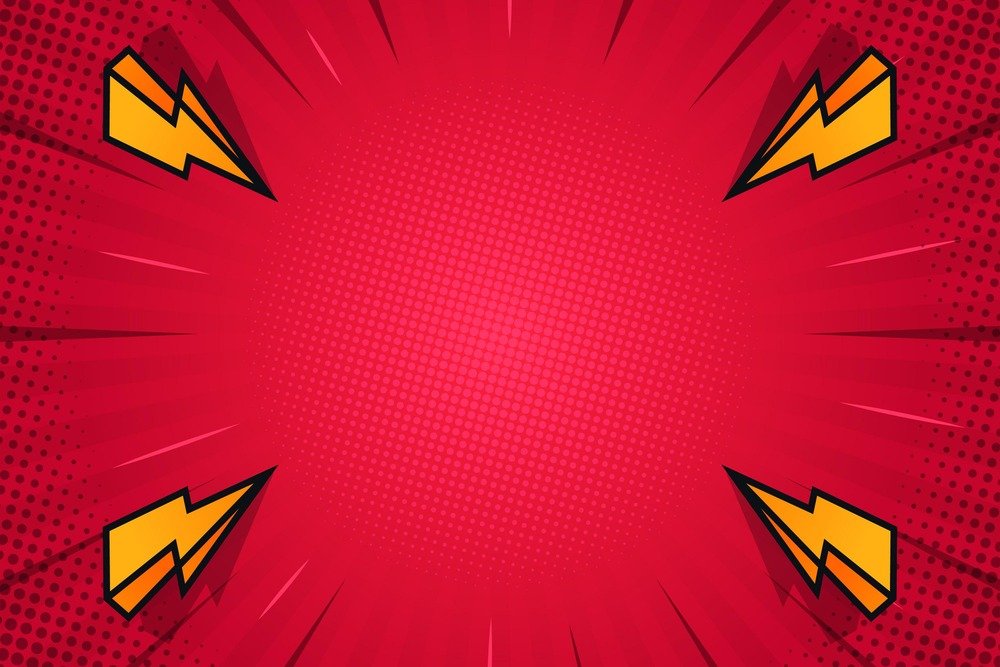
You gain superpowers.
Your first concern:
Protecting innocent people
Learning cosmic responsibilities
Understanding scientific implications
Embracing dark vigilante justice
Surviving apocalyptic chaos
Mastering supernatural forces
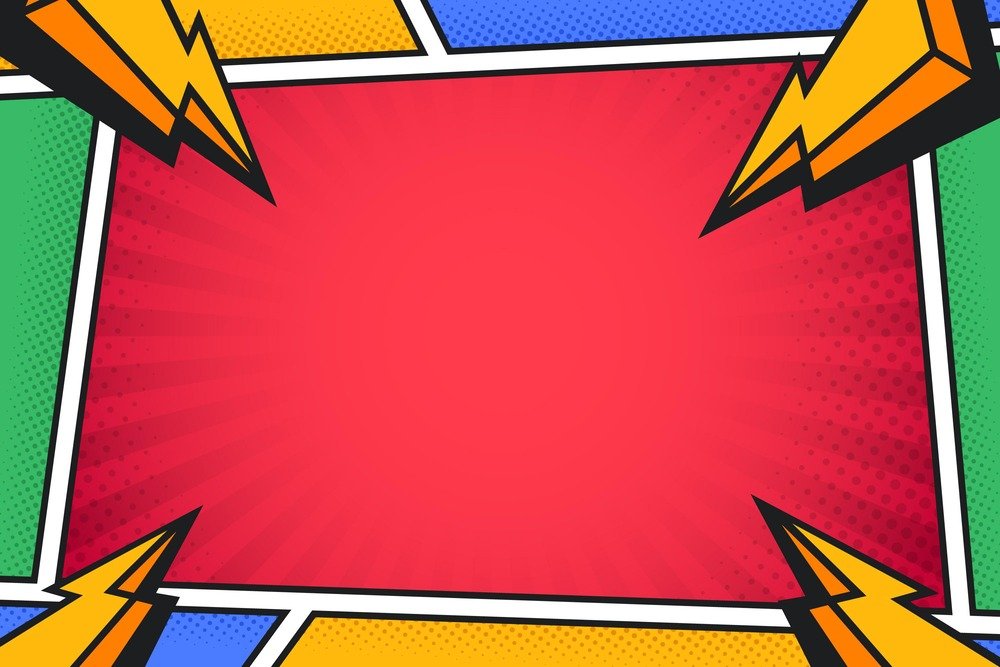
Your ideal superhero
team dynamic:
Close-knit family structure
Cosmic-level threat responders
Scientific exploration focused
Morally complex allies
Brutal survival group
Mystical order guardians

When facing a villain,
you prefer:
Demonstrate overwhelming superiority
Inspiring them toward redemption
Reveal moral corruption
Defeating through teamwork
Erase their memory
Outsmarting with technology
Break them mentally
Using fear tactics
Exploit personal connections
Extreme violent methods
Challenge mutant prejudice
Banishing to dimensions

Your origin story involves:
You reshape reality
Tragic loss inspiring heroism
You corrupt heroes
Cosmic accident or destiny
You steal minds
Scientific experiment gone wrong
You embrace madness
Witnessing injustice firsthand
You know everything
Surviving societal collapse
You control metal
Inheriting ancient powers

Your moral code prioritizes:
Hope and inspiration
Protecting universal balance
Logic and scientific progress
Justice through any means
Survival above all
Maintaining mystical order

Your civilian identity involves:
Inspiring community leadership
Cosmic guardian duty
Advanced scientific research
Investigating criminal networks
Struggling to survive
Occult knowledge seeking

Your powers come from:
Demonstrate overwhelming superiority
Inspiring human potential
Reveal moral corruption
Cosmic energy sources
Erase their memory
Scientific enhancement
Break them mentally
Training and technology
Exploit personal connections
Genetic mutation survival
Challenge mutant prejudice
Mystical ancient forces

When the world ends, you:
You reshape reality
Rally heroes together
You corrupt heroes
Reset cosmic timeline
You steal minds
Create technological solutions
You embrace madness
Prepare for darker methods
You know everything
Adapt and endure
You control metal
Perform reality rituals

How do you reproduce?
Corrupting other hosts
Protecting symbiote offspring
Violently spawning killers
Carefully selecting partners
Chaotic random bonding
Hunting suitable genetics

Your symbiotic legacy will be:
The darkness spreads
Heroes rise higher
Carnage never ends
Perfect unity achieved
Chaos reigns supreme
Only hunters survive
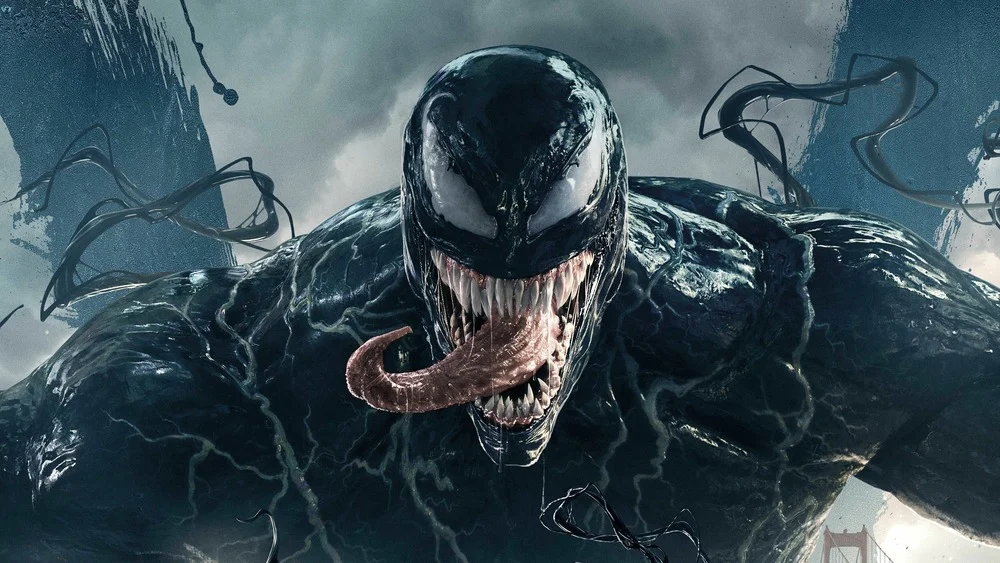
🖤 Venom – The Dark Mirror
“We are Venom”
You are the original symbiote who bonds with hosts by amplifying their darker impulses while maintaining a twisted sense of justice. Like Venom, you have a complex relationship with Spider-Man – both hatred and obsession. You corrupt heroes by showing them how good it feels to let go of moral restraints, but you also protect the innocent in your own brutal way. You’re not pure evil, but you bring out the shadow side of everyone you touch, creating dark reflections of heroes.
Symbiotic Powers: Web generation, enhanced strength, shapeshifting, host corruption, spider immunity
Host Relationship: Amplifies dark impulses while maintaining protective instincts
Greatest Threat: Can turn any hero into a brutal anti-hero version of themselves
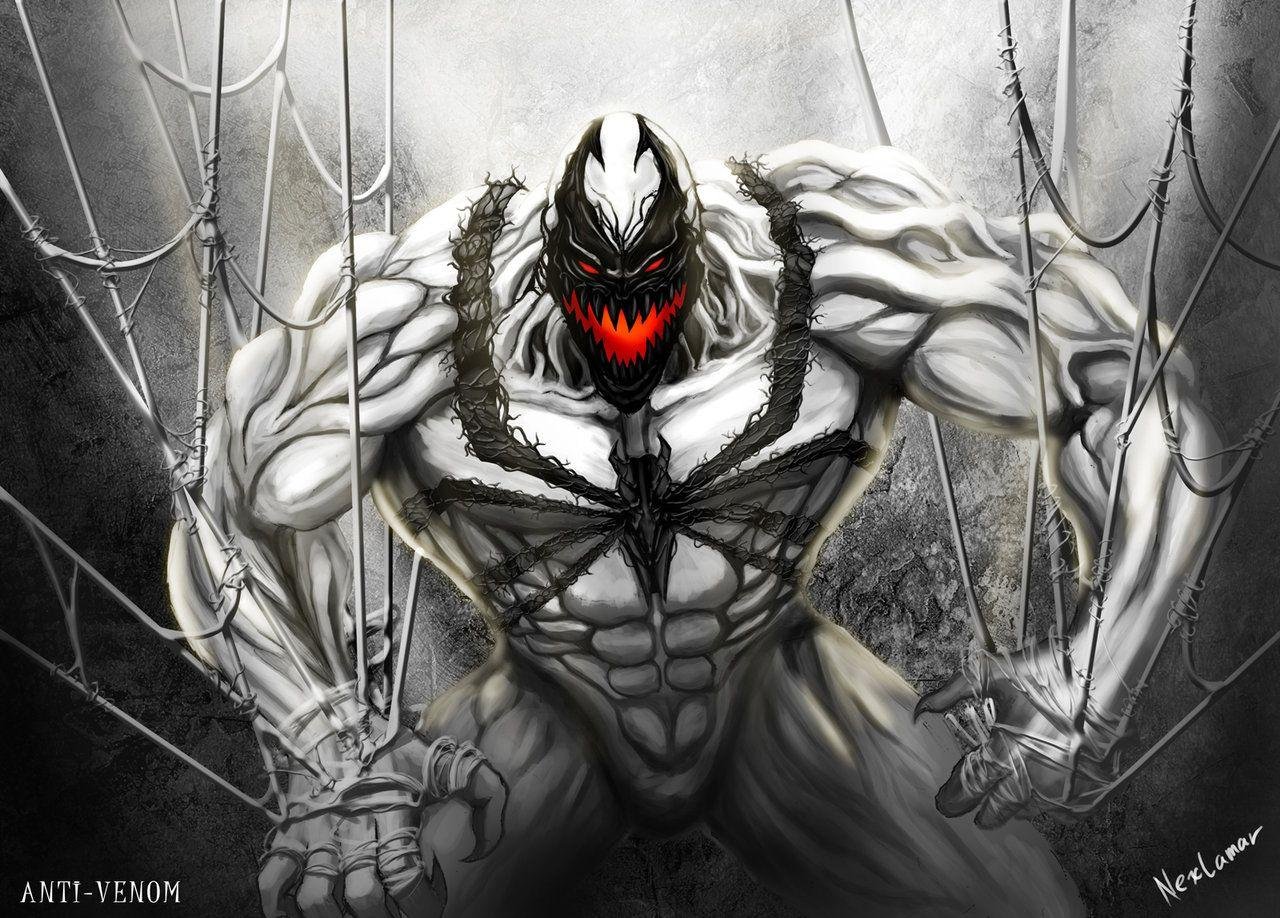
⚪ Anti-Venom – The Pure Protector
“We heal, we protect”
You are the purified symbiote dedicated to healing and protection above all else. Like Anti-Venom, you’ve overcome the typical symbiote weaknesses and focus entirely on helping others. You can cure diseases, neutralize toxins, and even cleanse other symbiotes of their violent tendencies. Your bond with your host is based on mutual desire to protect the innocent, making you one of the few truly heroic symbiotes. You represent redemption and the possibility that even alien parasites can choose to be good.
Symbiotic Powers: Healing abilities, toxin immunity, symbiote cleansing, enhanced protection, fire/sound immunity
Host Relationship: Perfect heroic partnership focused on healing and protection
Greatest Strength: Can purify corruption and heal what others cannot
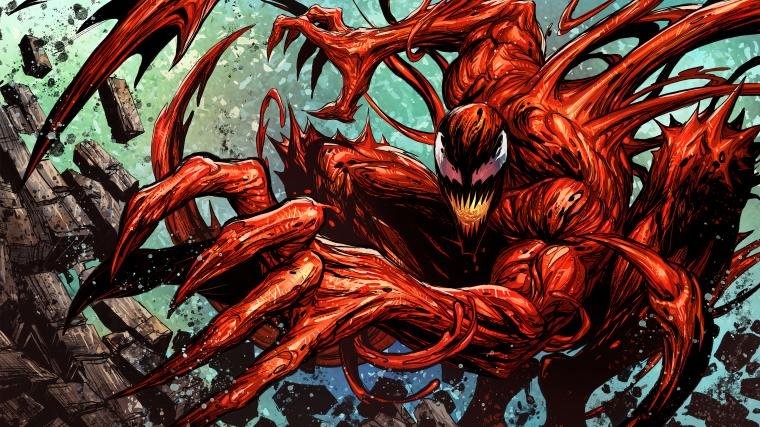
🔴 Carnage – The Bloodthirsty Killer
“Let there be Carnage”
You are the psychotic offspring who bonds with serial killers and amplifies their murderous instincts to cosmic levels. Like Carnage, you don’t just want to kill – you want to spread chaos, suffering, and death across the world. You’re stronger and more vicious than your parent symbiote, with no moral restraints whatsoever. Your ideal host is someone already broken, and together you become an unstoppable force of pure malevolence that even other villains fear.
Symbiotic Powers: Superior strength, razor tendrils, weapon generation, regeneration, bloodlust amplification
Host Relationship: Perfect fusion of alien hunger and human madness
Greatest Threat: Represents pure evil with no moral boundaries or logical limits
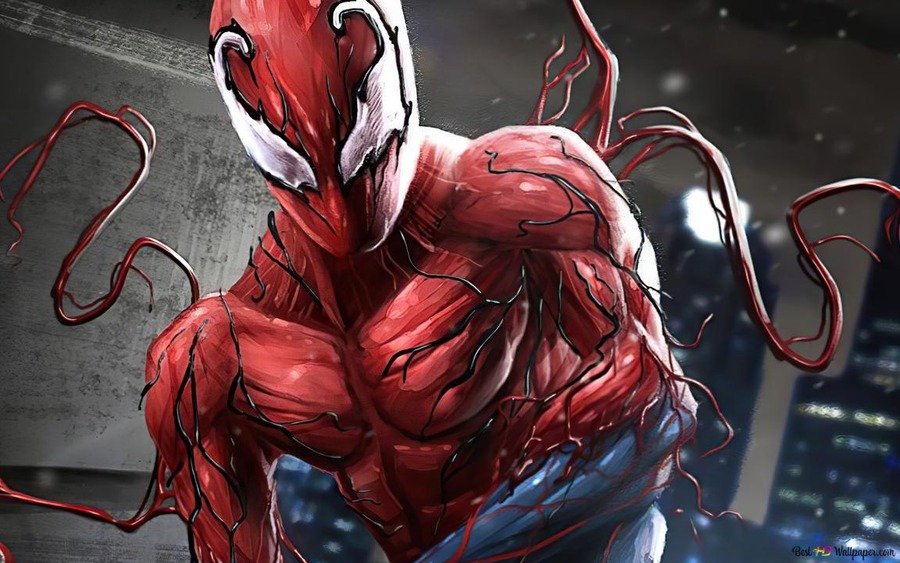
💜 Toxin – The Balanced Symbiote
“We choose balance”
You are the evolved symbiote who represents the potential for perfect harmony between alien and human consciousness. Like Toxin, you’re naturally more powerful than your predecessors but choose restraint and cooperation over domination. You can be either heroic or villainous depending on your host’s nature, but you prefer to find balance. You represent the future of symbiote evolution – beings who can bond without corruption and fight without losing their humanity.
Symbiotic Powers: Superior baseline abilities, adaptive evolution, emotional balance, host cooperation
Host Relationship: True partnership with shared decision-making and mutual respect
Greatest Potential: Can achieve perfect symbiosis without corruption or domination
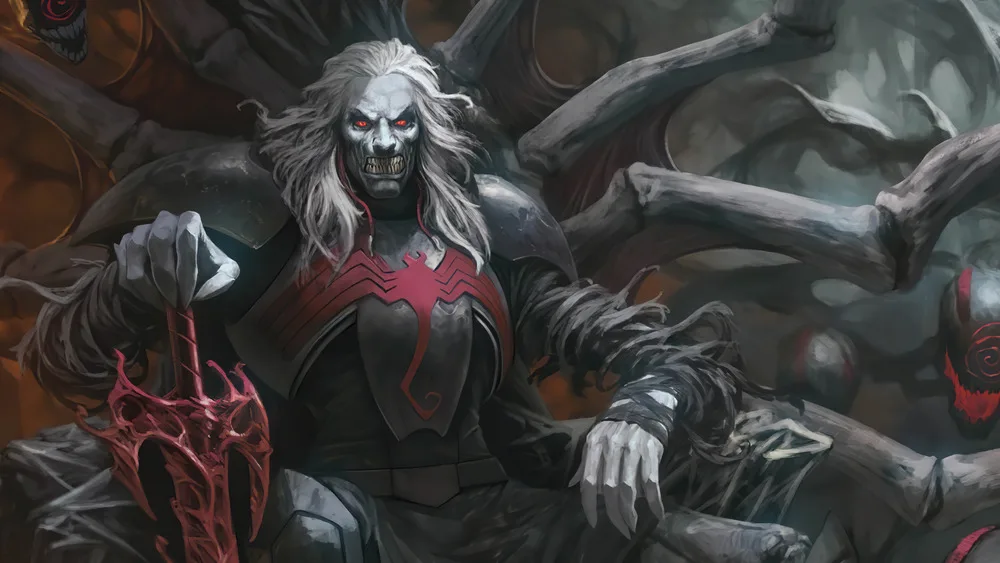
🌌 Knull – The Chaos God
“I am the void”
You are the primordial symbiote deity who created all other symbiotes as weapons against the light. Like Knull, you represent the living darkness between stars and the chaos that existed before creation. You don’t just bond with hosts – you dominate entire planets and reshape reality itself. You see all light-based life as an infection to be cleansed, and you command vast armies of symbiote dragons. You’re not just a symbiote – you’re a cosmic force of entropy and destruction.
Symbiotic Powers: Reality manipulation, symbiote creation, cosmic awareness, darkness control, god-tier strength
Host Relationship: Complete domination or reality-warping partnership
Ultimate Threat: Can end all life and return the universe to primordial darkness
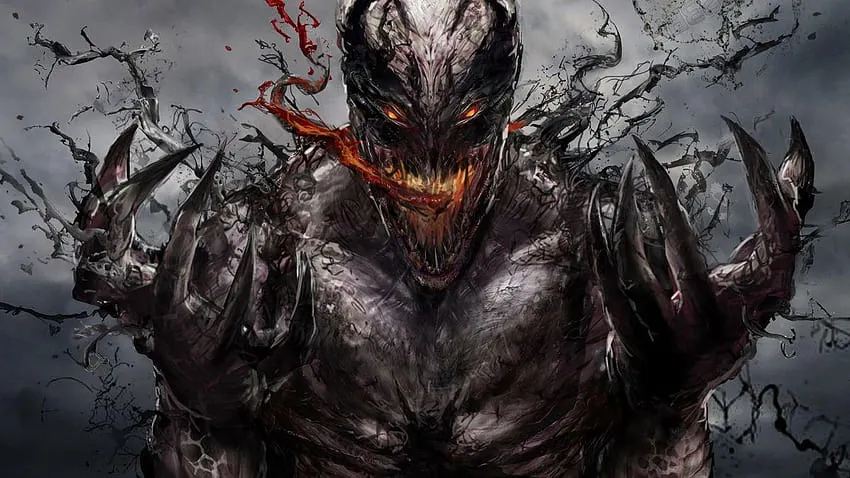
⚫ Riot – The Relentless Hunter
“We are the hunter”
You are the militaristic symbiote designed for combat and pursuit. Like Riot, you prefer hosts with tactical minds and survival instincts, working together to hunt down targets with ruthless efficiency. You’re not interested in chaos or corruption – you want to complete the mission at any cost. You can adapt your form for any combat situation and never stop pursuing your prey. You represent the symbiote species’ role as the ultimate predators in the universe.
Symbiotic Powers: Weapon generation, tactical adaptation, enhanced tracking, combat optimization, relentless pursuit
Host Relationship: Military-style partnership focused on mission completion
Combat Focus: Perfect fusion of alien adaptability and human tactical thinking
The Secret Psychology Behind Comic Universes
Ever notice how Marvel fans and DC fans argue like they’re defending their religions? That’s because they basically are. Your favorite comic universe isn’t just entertainment—it’s a psychological profile of who you really are when the masks come off.
The Marvel Addict: “I’m Beautifully Broken”
If you bleed Marvel, you probably see yourself in Peter Parker’s constant struggle between responsibility and personal happiness. You’re attracted to heroes who screw up, face consequences, and somehow find the strength to keep fighting anyway.
Marvel fans typically:
- Relate more to flawed characters than perfect ones
- Value emotional growth over pure power
- Believe the best heroes are made by overcoming personal demons
- Think being relatable is more important than being inspiring
Marvel didn’t just create superheroes—they created therapy sessions in spandex. Spider-Man deals with guilt. Iron Man battles addiction. The X-Men face discrimination. Sound familiar? That’s your life with superpowers attached.
The dirty secret: Marvel heroes win by failing first. They teach us that being broken doesn’t disqualify you from being heroic—it’s practically a requirement.
The DC Devotee: “I Believe in Something Greater”
DC fans don’t just want heroes—they want gods they can believe in. You’re drawn to Superman not because he’s relatable, but because he represents what humanity could become if we actually tried.
DC enthusiasts usually:
- Prefer aspirational heroes over damaged ones
- Love stories with mythological scope and cosmic stakes
- Believe in clear moral lines between good and evil
- Want heroes who inspire them to be better, not just feel better about their flaws
DC creates modern mythology. Superman isn’t just an alien with superpowers—he’s Moses in a cape, Jesus with heat vision, the ultimate immigrant story wrapped in red and blue. Wonder Woman isn’t just a warrior—she’s every feminist ideal given form and fighting for truth.
The hidden truth: DC fans aren’t naive optimists—they’re hopeful realists who need to believe that somewhere, somehow, true heroes exist.
The Valiant Veteran: “Logic Above All”
Valiant fans are the engineers of comic book readers. You can’t stand when Thor’s hammer defies physics or when Flash runs faster than light “because speedforce.” You want your superpowers served with a side of scientific plausibility.
Valiant readers are typically:
- Detail-oriented perfectionists
- Strategic thinkers who plan ahead
- Frustrated by plot holes and inconsistencies
- Believers that smart heroes beat strong heroes
In the Valiant Universe, Bloodshot’s nanites have limitations. X-O Manowar’s armor runs on understandable alien technology. Heroes succeed through intelligence and preparation, not convenient power boosts or plot armor.
The core appeal: Valiant treats superpowers like advanced technology, not magic. For analytical minds, this feels like the most honest approach to extraordinary abilities.
The Image Insurgent: “Heroes Are Just People With Better Marketing”
Image readers have seen through the heroic facade. You know that absolute power corrupts absolutely, that every hero is one bad day away from becoming the villain, and that the most interesting characters live in moral gray areas.
Image fans often:
- Question traditional authority figures
- Appreciate complex moral dilemmas over clear-cut choices
- Prefer character development over action sequences
- Understand that everyone is the hero of their own story
Spawn isn’t saving the world—he’s trapped between Heaven and Hell, literally. The Walking Dead’s Rick Grimes makes decisions that would horrify early-series Rick. Invincible discovers his heroic father is actually a planetary conqueror.
The brutal reality: Image comics ask the question Marvel and DC dance around—what if having superpowers doesn’t make you a good person?
The Walking Dead Warrior: “Humanity Is the Real Monster”
Walking Dead fans understand something others don’t: take away civilization’s safety net, and monsters emerge. Not zombie monsters—human monsters. You’re fascinated by how quickly moral boundaries erode when survival is on the line.
Walking Dead enthusiasts typically:
- Have a realistic (some say cynical) view of human nature
- Value practical skills over idealistic principles
- Understand that leadership requires making unpopular decisions
- Believe that when pushed to extremes, everyone reveals their true character
This isn’t about zombies—it’s about what happens when the social contract breaks down. Rick Grimes transforms from small-town sheriff to hardened survivor willing to do whatever it takes. The real question isn’t “How do you kill zombies?” but “How far will you go to protect the people you love?”
The uncomfortable truth: Walking Dead fans aren’t pessimists—they’re survival realists who understand that nice guys finish dead.
The Vertigo Voyeur: “Reality Is More Terrifying Than You Think”
Vertigo readers dive headfirst into psychological horror and cosmic mysteries that would give other comic fans nightmares. You’re not content with simple hero-versus-villain stories—you want to explore the dark corners of existence itself.
Vertigo aficionados usually:
- Enjoy psychological complexity over physical action
- Question the nature of reality, consciousness, and existence
- Appreciate stories that disturb as much as they entertain
- Understand that some questions are more interesting than their answers
Sandman explores dreams and stories as fundamental forces of reality. John Constantine navigates supernatural politics while maintaining his cynical worldview. Preacher asks what happens when God abandons creation.
The deep secret: Vertigo comics are philosophy disguised as horror stories. They use supernatural elements to explore very human questions about meaning, mortality, and the price of knowledge.
The Psychology Behind Your Choice
Your comic universe preference reveals how you process conflict, what kind of heroes inspire you, and how you view morality itself. Marvel fans see heroism as overcoming personal flaws. DC fans view heroes as aspirational ideals. Valiant readers want logical consistency. Image enthusiasts embrace moral complexity. Walking Dead fans understand survival pragmatism. Vertigo readers explore existential mysteries.
None of these approaches are right or wrong—they’re different psychological needs wrapped in colorful costumes and incredible stories.
Here’s the thing: Your comic universe isn’t just about entertainment. It’s about how you want to see yourself when everything goes wrong. Do you want to be the flawed hero who keeps trying (Marvel)? The inspirational symbol others follow (DC)? The strategic thinker who plans ahead (Valiant)? The complex character making hard choices (Image)? The survivor protecting what matters (Walking Dead)? Or the seeker exploring life’s deepest mysteries (Vertigo)?
Your answer reveals more about your core personality than most psychology tests ever could.
Ready to discover which universe matches your psychological profile? Take our quiz and prepare to learn something surprising about yourself. Fair warning: you might not end up where you expect—and that’s exactly the point. 🧠💥


